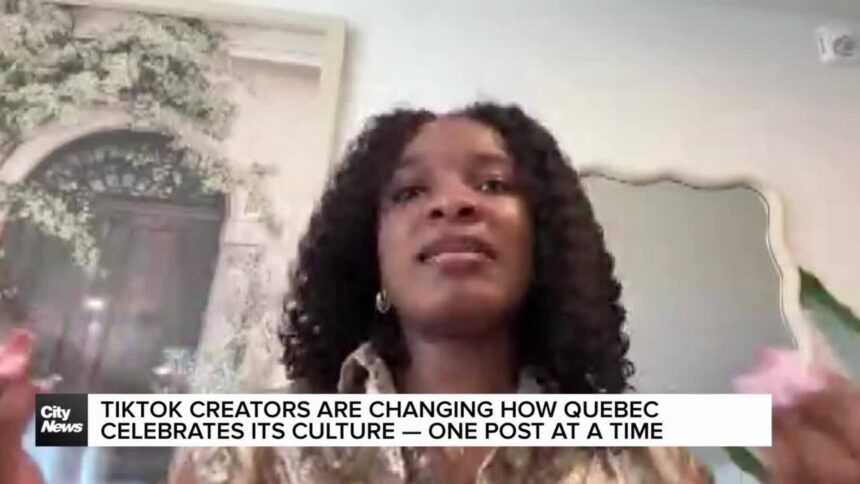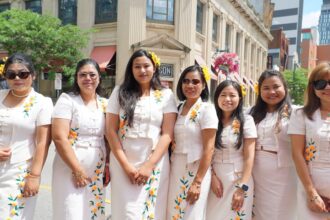In the blue glow of smartphone screens across Quebec, a cultural revolution is quietly unfolding. What began as dance challenges and fifteen-second comedy skits has evolved into something far more significant: TikTok is fundamentally changing how Quebecers celebrate, preserve, and reimagine their cultural identity.
Last week, as the province erupted in Saint-Jean-Baptiste Day festivities, I couldn’t help but notice how digital fingerprints were all over our supposedly traditional celebrations. Young Quebecers weren’t just participating in age-old customs; they were documenting, remixing, and broadcasting them to global audiences through short-form videos that rack up hundreds of thousands of views.
“We’re seeing the democratization of cultural gatekeeping,” explains Dr. Marie Leclerc, professor of digital media studies at Université de Montréal. “Previously, cultural narratives were controlled by established institutions. Now, a 19-year-old with a phone and clever editing skills can shape how thousands perceive Québécois traditions.”
The numbers are impossible to ignore. Videos tagged with #QuebecCulture have accumulated over 87 million views this year alone, while content relating to traditional celebrations has seen engagement rates triple since 2022. What’s particularly fascinating is how this digital renaissance isn’t replacing traditional celebrations but enhancing them, creating a feedback loop between virtual and physical expressions of identity.
Take Félix Dubois, a 22-year-old creator from Saguenay whose comedic takes on Quebec expressions have earned him over 900,000 followers. His series on “things you only understand if you grew up in Quebec” has become required viewing for diaspora Quebecers looking to maintain connections to their roots. When I spoke with him at a Saint-Jean event in Montreal, the line of young fans waiting to meet him stretched nearly a block.
“I never thought talking about my grand-mère’s tourtière recipe would make me famous,” he laughed. “But people are hungry for content that reflects their lived experience, especially when it’s wrapped in humor.”
What’s emerging isn’t simply a digital mirror of existing traditions but something more transformative. The platform’s algorithm-driven approach means that lesser-known aspects of Quebec culture—from Indigenous influences to immigrant contributions—are finding new audiences. Creators from Montreal’s diverse neighborhoods are showcasing fusion cuisine that blends traditional Québécois ingredients with Lebanese, Haitian, or Vietnamese techniques, challenging monolithic notions of provincial identity.
The trend isn’t without controversy. Some cultural preservationists argue that TikTok’s emphasis on entertainment value risks trivializing complex traditions. “There’s legitimate concern about reducing centuries-old practices to trendy soundbites,” acknowledges Catherine Tremblay, director of Quebec’s Cultural Heritage Foundation. “But we must also recognize that cultures survive by adapting. The alternative—cultural stagnation—is far more dangerous.”
What separates this digital cultural movement from previous social media trends is its tangible impact on real-world celebrations. This year’s Fête nationale events across the province incorporated elements that gained popularity online—from specific folk dance variations to modern twists on traditional foods. Several municipalities even invited prominent TikTok creators to help design youth-oriented programming.
For older generations, this digital reimagining can be disorienting. “I barely recognize some of the celebrations my grandchildren participate in,” admits Jean-Pierre Bouchard, 72, from Quebec City. “But I’m trying to understand rather than resist. They’re keeping our culture alive, just in ways I couldn’t have imagined.”
The most promising aspect of this phenomenon may be its potential for cultural preservation. As younger Quebecers document family recipes, local expressions, and community rituals, they’re creating a vast digital archive of lived experience. Future historians studying Quebec’s cultural evolution will have unprecedented access to how ordinary people actually experienced and expressed their identity during this period.
The influence flows both ways. Creators who begin by documenting traditions often find themselves developing deeper interests in their heritage. Twenty-four-year-old Montrealer Amélie Wong, whose TikTok videos explore her mixed Chinese-Québécois background, tells me she’s now enrolled in Quebec studies courses at Concordia. “Making content about my heritage made me realize how little I actually knew,” she explains. “Now I’m learning Quebec history formally because my followers keep asking questions I can’t answer.”
As CO24 Culture has previously explored, we’re witnessing not just a change in how culture is shared but in who gets to define it. The decentralization of cultural authority represents both challenge and opportunity for Quebec’s distinctive identity in an increasingly homogenized global landscape.
What remains to be seen is whether these digital expressions will have staying power or fade with the next technological shift. Will today’s TikTok trends become tomorrow’s traditions? Or are we witnessing something more ephemeral?
Perhaps the answer lies somewhere in between. Culture has always evolved through a tension between preservation and innovation. What’s different now is simply the speed and scale of the conversation. In the digital public square of TikTok, Quebec’s cultural identity isn’t just being maintained—it’s being negotiated, challenged, and reinvented with every swipe and share.
And isn’t that vibrant, messy process of cultural evolution something worth celebrating in itself?
Daniel Moreau is Culture and Lifestyle Editor at CO24 Trends. His analyses of cultural phenomena can be found at CO24 Opinions.


















